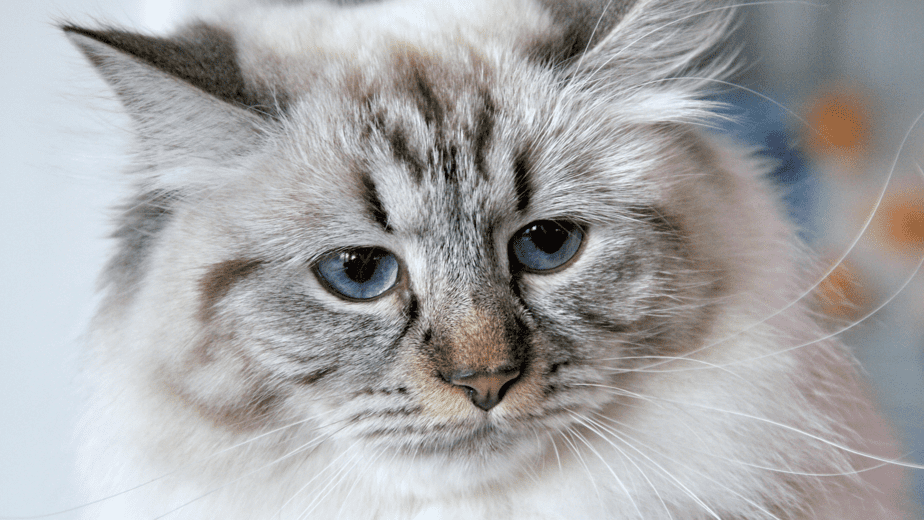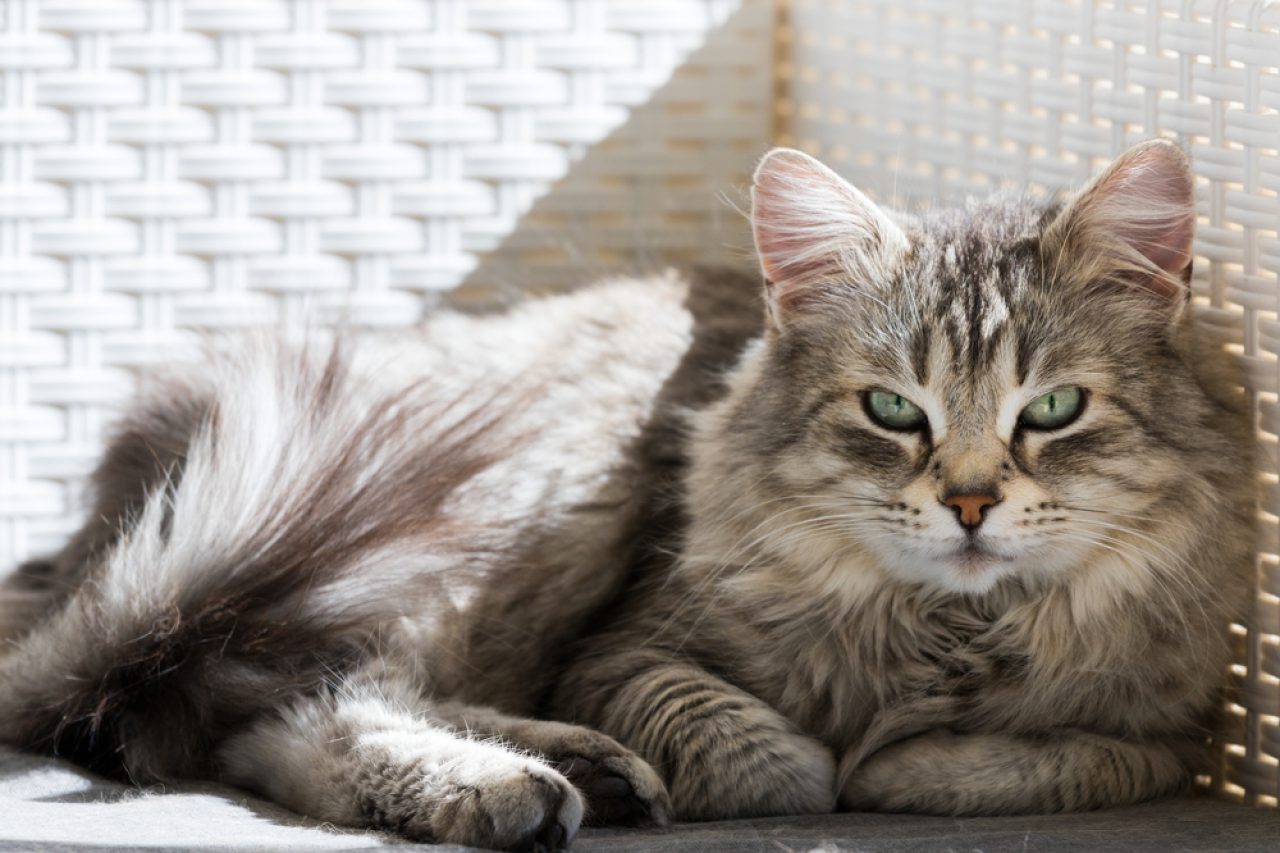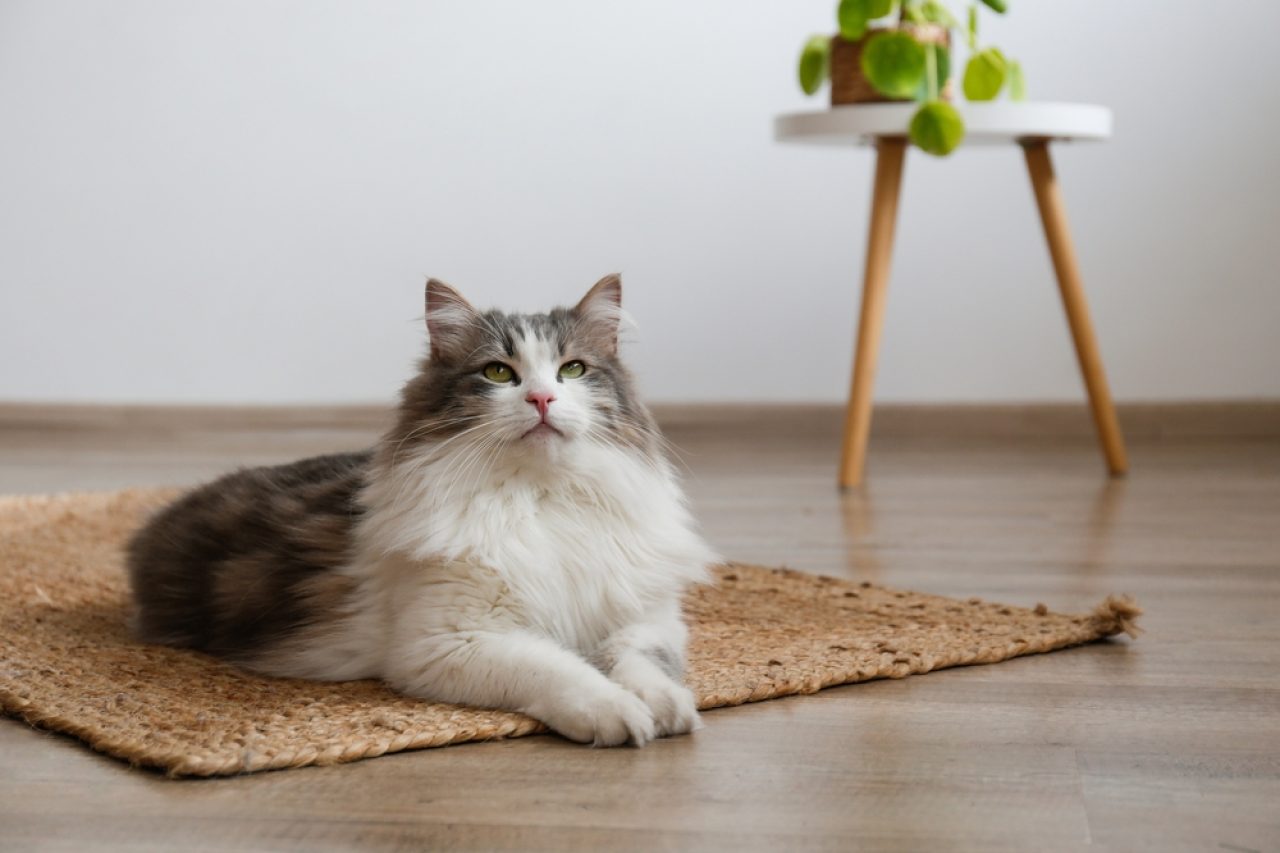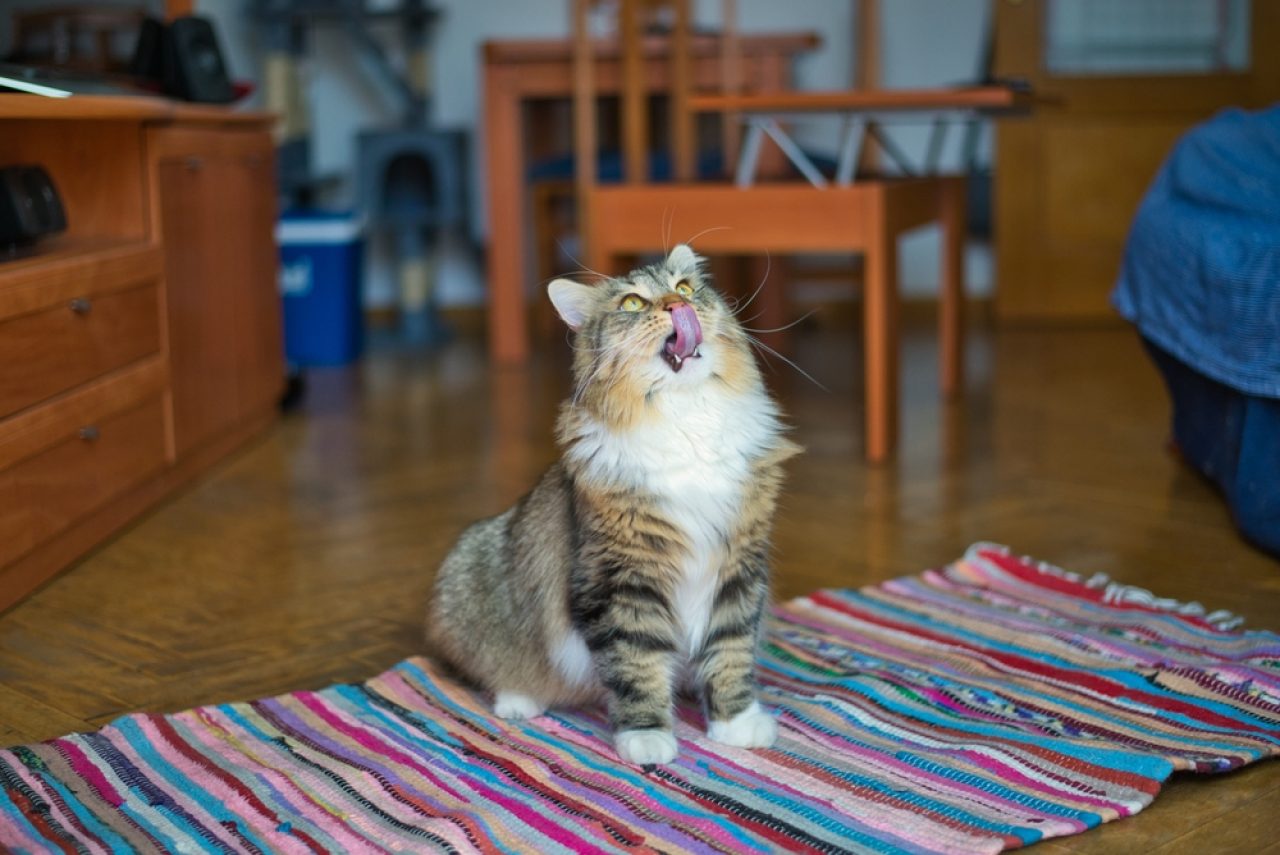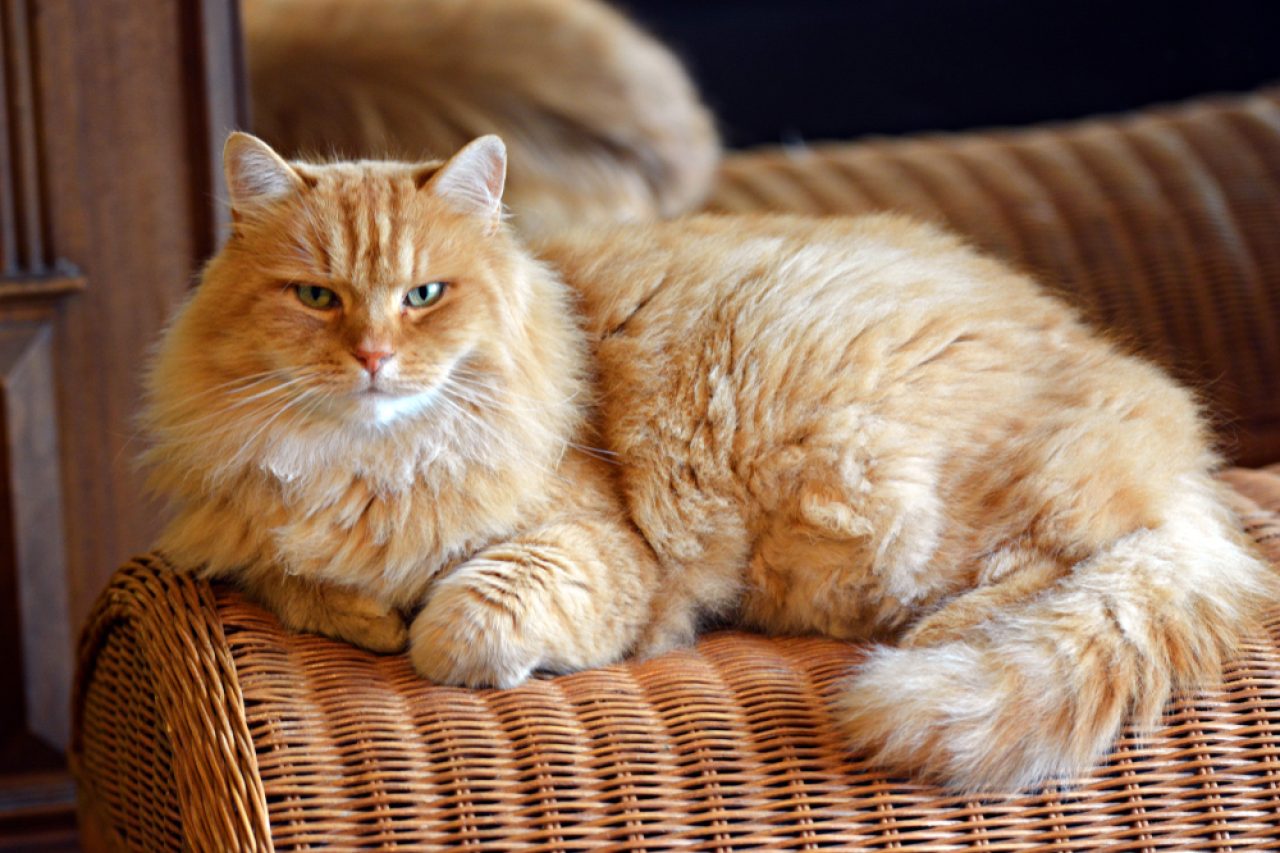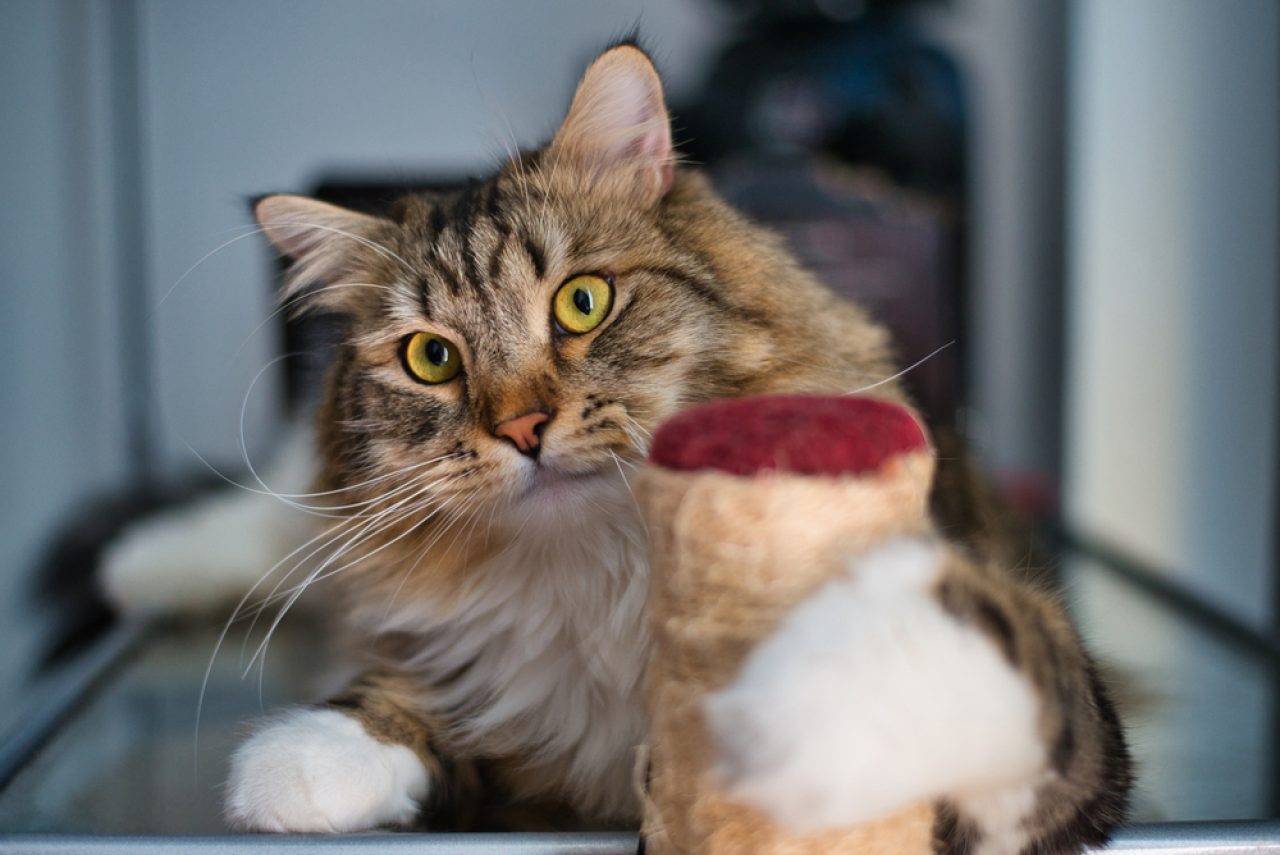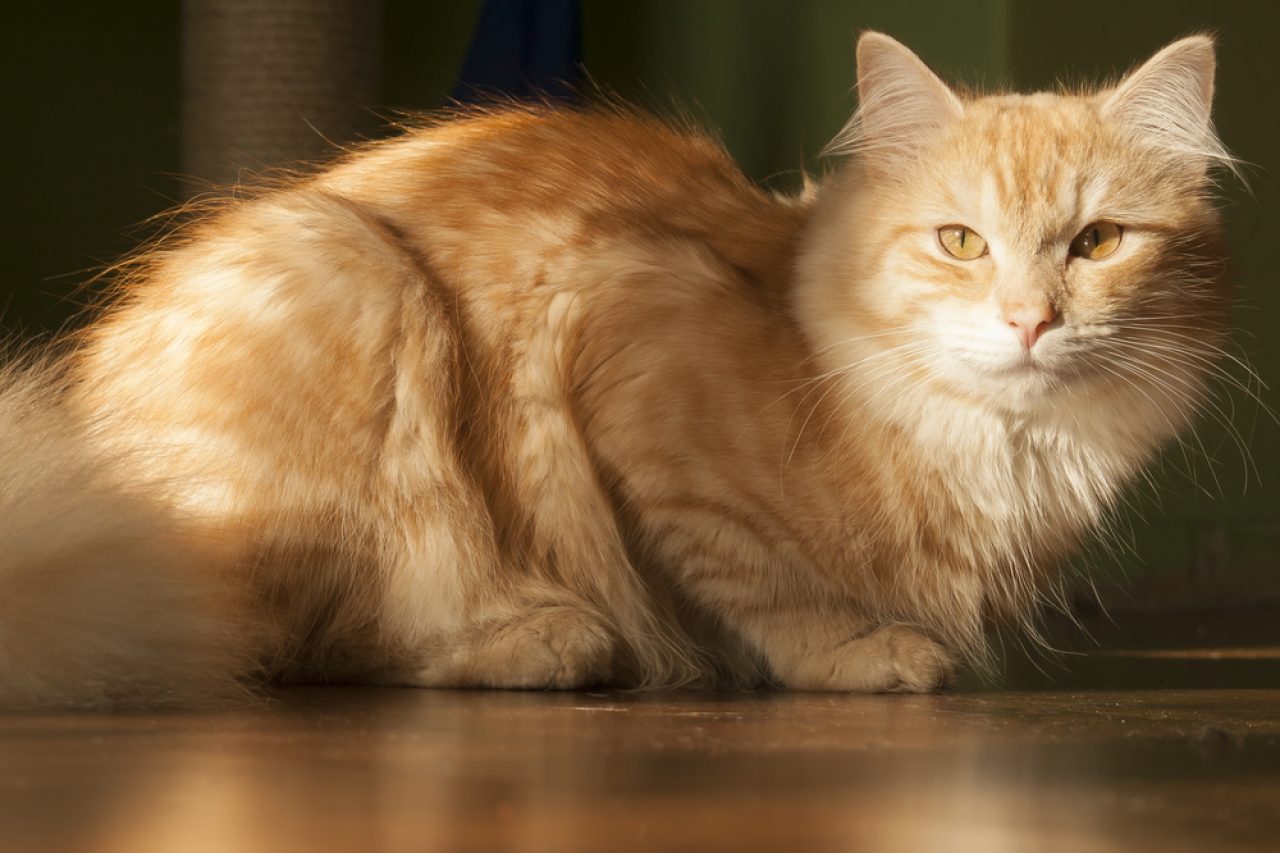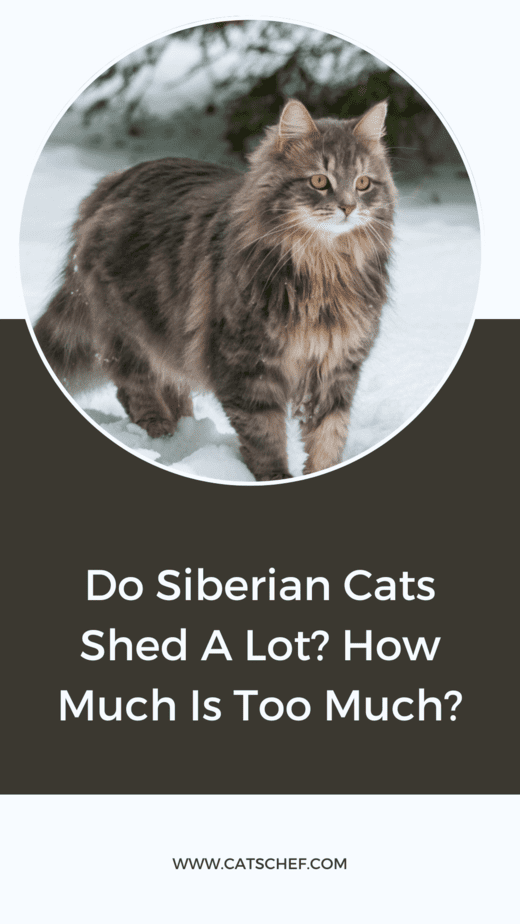📖 Table of Content:
Some cats shed a lot and some much less. It all depends on the type of fur, number of coats, season, and diet. Shedding is a big factor to consider when getting a kitto. And if you’re thinking about getting this breed, you’re probably wondering: do Siberian cats shed a lot?
Considering how much a feline sheds is important because it affects the time and effort spent on grooming and cleaning the house. When looking at a cat with such long fur, it’s natural to assume there’d be hair everywhere.
And since they’re considered partially hypoallergenic, does that affect their shedding?
So, let’s take a look at just how much Siberian cats shed, when they shed the most, and if there’s any way to reduce it. Also, we’ll cover how diet affects the process, as well as how to keep your house clean.
The fur of a Siberian cat
As the name suggests, Siberian cats originated in Siberia. Their fur was developed to protect them from the harsh climate and freezing weather. That’s why it consists of a thick coat and a dense undercoat that keeps them warm in the lowest of temperatures.
All of this hair needs to change depending on the temperature, so they shed periodically. But despite the thickness of their coat, Siberian cats don’t shed as much as felines with similar fur. They’ll replace a large amount of hair twice a year, but won’t shed much in between.
Do Siberian cats shed based on season?
Yes, a Siberian cat’s shedding is tightly linked to the seasons. They lose a lot of hair, only to replace it with more or less fur. That’s why the process occurs twice a year when temperatures are at their extremes. Although they shed throughout the year, too, it’s barely noticeable.
In autumn, they shed in order to let more fur grow out. This new coat is much denser. It keeps them warm enough to make it through the sharp winters. Then in spring, they lose this coat because the temperatures increase. They have no need for a thick undercoat during the summer.
Hypoallergenic cats and shedding
There is no cat breed that’s fully hypoallergenic. Humans are allergic to a specific protein found in dander, saliva, and urine – not hair. But hair is usually the carrier. So, regardless of how much your cat sheds, you’ll still be allergic.
Siberian cats, however, produce less of this protein. This, in turn, makes fewer people have allergic reactions to them. But it doesn’t make Siberians completely hypoallergenic. Reducing the amount of dander would help and the best way to do so is through regular grooming.
How can you regulate shedding?
Since shedding cannot be controlled, there is little you can do to regulate it. There are three ways to lessen the amount of hair your Siberian cat sheds, but it probably won’t be enough. Those are temperature regulation, grooming, and proper diet.
1. Temperature regulation
One way to try and reduce shedding is by regulating the temperature. There is no guarantee that it will work, but it’s worth a try. It essentially involves reducing the temperature of the place where you keep your cat.
But you don’t want to freeze her, so if the slight change doesn’t help, don’t drop the temperature lower.
2. Grooming
Siberian cats have long, thick fur that can become your worst nightmare during the shedding seasons. Because most Siberians are kept as housecats, the process sometimes leaves its seasonal borders. They may start shedding all year round since the temperature in your home is the same all year.
This means that you need to get creative and try to beat nature. A way to do so is to frequently groom your feline. A Siberian’s fur normally doesn’t require a lot of care. But if you want to minimize shedding, you’ll need to groom them often.
Grooming your cat to lessen shedding consists of two things: brushing and bathing. Brushing your feline at least twice a week will help you gather all that loose hair. That way you can just pick it off of the brush and throw it away. There’ll be less hair for her to shed around the house.
The other way to get rid of the excess fur is by bathing her. Bathing also gathers loose hair, but you shouldn’t do it more than twice a year. Cats hate water and groom themselves for a reason. Their skin is naturally oily to keep their skin healthy. Water can mess up their skin’s pH levels and cause problems.
3. Proper diet
If a feline doesn’t get enough nutrients through food or is under stress, it can cause excessive shedding. That’s why it’s important to provide a balanced diet and keep track of what your cat eats. It’s also crucial to keep the portions the right size.
Overfeeding and underfeeding your furball can be equally dangerous. And a cat’s fur is usually a reflection of her health. If you notice that it’s oily or matted, it could be a sign of some health issue. If you spot any unusual change, take her to the vet.
What to do if you notice signs of irregular shedding?
When asking whether Siberian cats shed a lot, it’s also important to see just how much is considered normal. While the amount of hair they lose varies based on season, there are some clear signs that point to issues.
Those can include losing fur in patches, and scratching or biting certain areas excessively. If you notice any of these signs, take her to the vet immediately. The causes can be various illnesses, allergies, stress, hormonal issues, or an inadequate diet.
If the cause is an illness, allergy, or hormonal imbalance, your vet will be the best help. He’ll find the root of the problem and give you direct guidelines on what to do next. With the right medication and help, your feline will hopefully recover quickly.
And if the issue comes from a poor diet, the vet can provide some tips to follow. Generally speaking, your cat’s diet needs to be authentic to a feline’s biological requirements. Which means that you need to supply her with all the nutrients she’d get in the wild. This includes:
1. Protein
Your cat’s diet should consist primarily of meat. It can come in the form of cat food (wet, dry, raw meat) or homemade food. Remember that loads of cat food out there doesn’t contain all the necessary nutrients. That’s why you should always consult your vet.
He should be able to recommend the best options for your feline. Protein will help your cat keep her energy, build muscle, and support organ function. A diet without it would be detrimental to your feline.
2. Fat
Fat helps boost the immune system, regulate inflammation, and promote healing. Fur issues like matting, bald patches, and an oily coat could all point to your kitty not ingesting enough fat. It should be easy to make them eat more though because they find it delicious.
3. Micronutrients
Despite the prefix “micro,” micronutrients play a big role in keeping your cat healthy. Cats need vitamins (A, B, and E), omega-3 and omega-6 fatty acids, keratin, and collagen. All of these ensure your cat functions properly, and keeps her fur shiny and healthy.
Do Siberian cats shed a lot when you cut their fur short?
Would cutting your feline’s fur help reduce shedding? Well, not really, but that doesn’t mean there’s no reason to do it, anyway. Trimming her coat will help her regulate her heat during hotter times. Despite shedding to form summer coats, Siberian cats still can’t handle the heat.
They were made for colder climates, so no matter how much they shed, in certain climates, it is still too warm for them. That’s why cutting their coats short is such a great idea. Just make sure to take them to a professional groomer. Styling their fur isn’t as easy as it may seem.
How to remove hair from your house
Regardless of your best efforts, there will still be cat fur around the house. Shedding is an unstoppable process, so the best you can do is accept it and try to keep your house clean. (Well, as clean as possible!)
Everyone knows that once you get a cat, you will forever be covered in her fur. Luckily, there are ways to get rid of at least some of it. Here are some useful methods of removing hair from clothes and furniture.
1. Lint rollers
The classic item that every fuzzy animal owner has in their home. Just remove the protective tape and rub kitty hair off your clothes before going out. You might need a few of them to clean a couch, though.
2. Rubber or wool gloves
Another method I found works great for removing hair is rubber or wool gloves. The rough texture of the wool picks up hairs from your clothes or furniture. But the rubber works even better. Use a damp rubber glove to remove the fur and then just rinse it off.
3. Vacuum
Got guests coming over last minute and don’t have much time? You can always try vacuuming the hairy surfaces. Its efficiency depends on the strength of the vacuum though, so this method might not work for everyone.
The bottom line
As we’ve seen, shedding is a process that is dependent on many factors. It’s influenced by your cat’s diet, her stress levels, the season, the temperature of your home, and so much more. It’s difficult to say how much Siberian cats shed, even when you factor in everything.
So, do Siberian cats shed a lot or not? It all depends on the individual feline. You just need to keep in mind that if you’re feeding her well and she’s healthy, you’re already doing all that you can. Everything else is out of your control.
Now you just need to learn to live with a hairy house and do your best to keep it clean. Every cat breed sheds, so you can’t escape it no matter what kitto you choose. But there’s comfort in knowing that Siberian cats don’t shed half as much as some other breeds.
